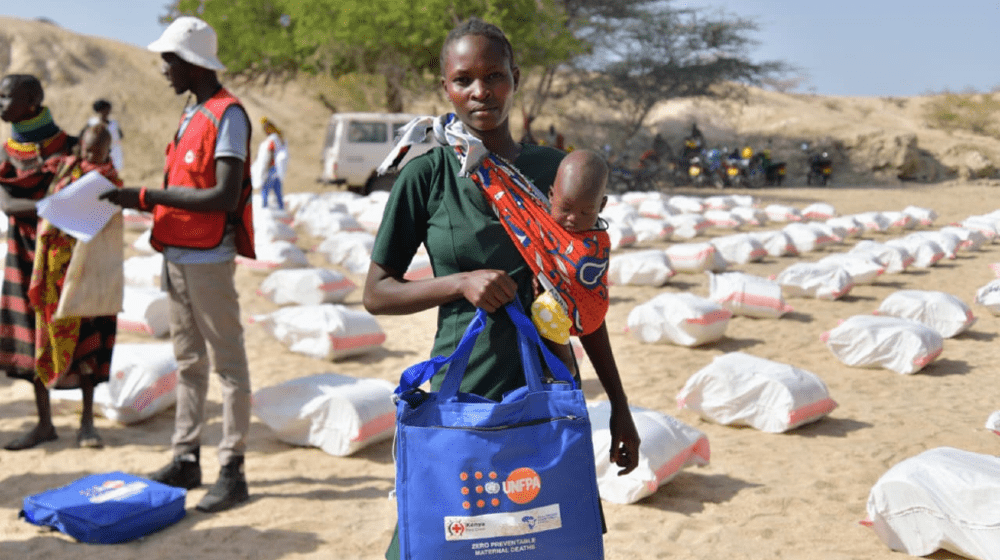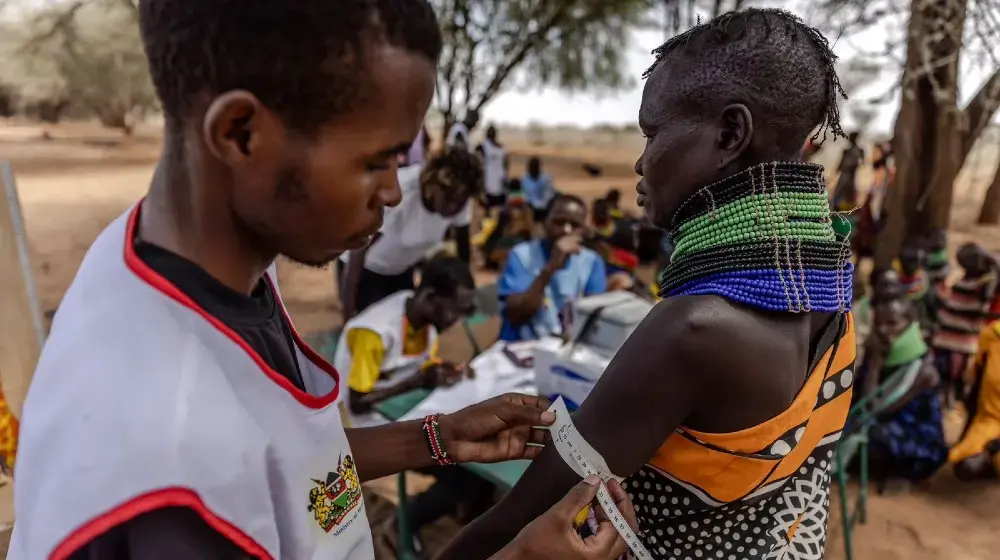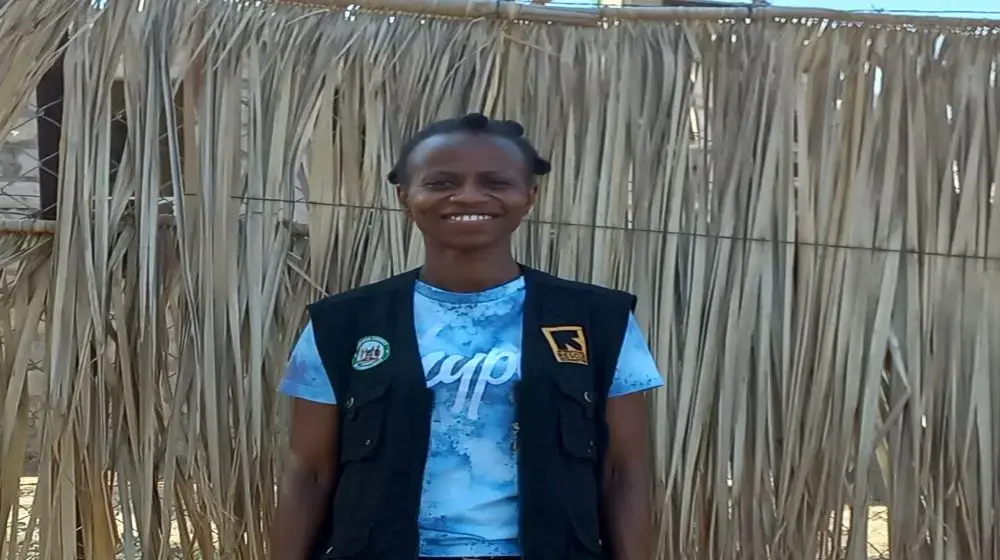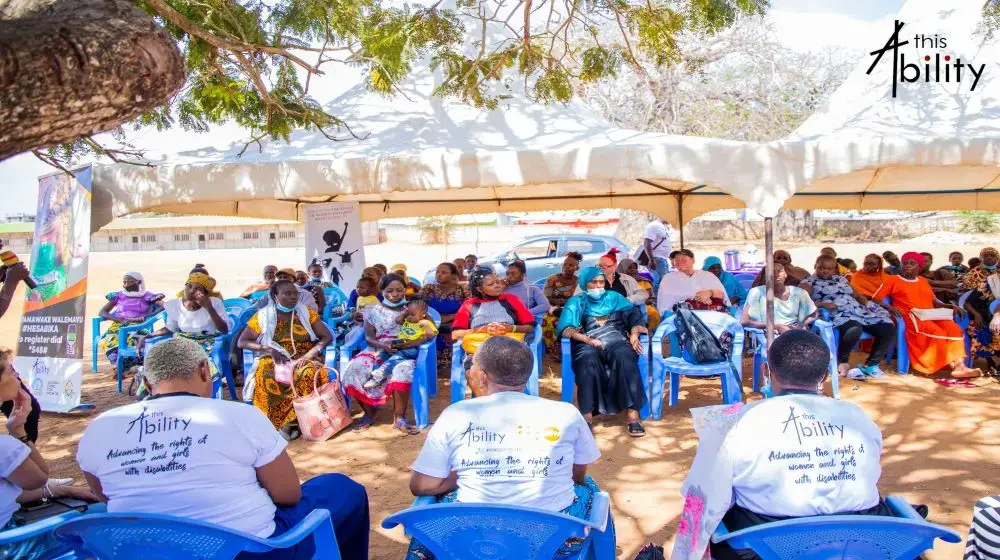For communities living in Kenya’s arid and semi-arid lands, the months of March to May brought much-needed rains that provided a reprieve from the worst drought the country has experienced in the last four decades. But the rains have also introduced new challenges for the more than four million people in need of humanitarian assistance, with floods and cholera outbreaks experienced in some areas.
During droughts and humanitarian crises, women and girls often bear the brunt of the burden. With limited access to clean water and sanitation facilities, they face heightened health risks and challenges in maintaining proper hygiene in the home. Recognizing this, UNFPA and IOM tailored a response to ensure the provision of critical supplies that meet the specific needs of affected women and girls and their families in the worst affected regions of Turkana and Garissa counties.
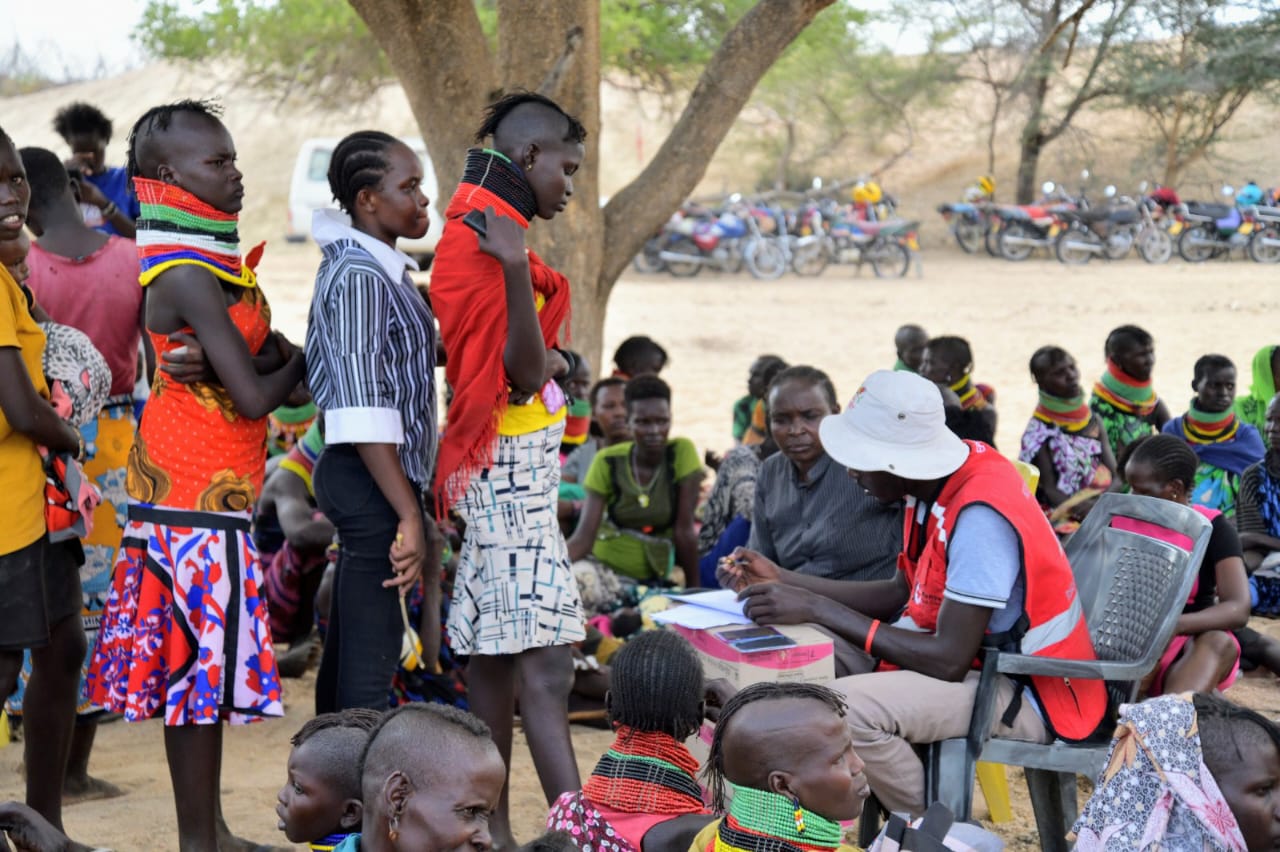
to reduce vulnerability to health concerns and protection risks.
The UN agencies partnered with local government and community-based organizations to distribute dignity and hygiene kits to 900 households, to reduce vulnerability to health concerns and protection risks such as gender-based violence. UNFPA provided sanitary towels as well as mama kits containing basic supplies such as postpartum pads, baby diapers, baby clothes, and blankets to provide aid to a new mother and her newborn. The IOM hygiene kits contained aqua tabs, jerry cans, and soap to improve access to clean water and prevent the risk of transmission of diseases such as Cholera.
Among those receiving the kits was 20-year-old Jasmin Lopua who lives in the Lochwaar sub-location of Turkana County. Having given birth four months ago, access to clean water and supplies such as soap and diapers is of utmost importance to the young mother. “Because of the drought, we have had to travel almost 6 kilometers to find water, and sometimes all that is available is brown and murky water from shallow dug wells which even livestock drink from,” she says. With the new supplies, Jasmin will be able to treat contaminated water for use in the home, while maintaining her personal hygiene and that of her baby.
The joint UNFPA and IOM drought response initiative was conducted with funding from the Government of Japan, and the Central Emergency Response Fund (CERF).

